Desire-Emile Inghelbrecht - Inghelbrecht conducts Debussy (2012)
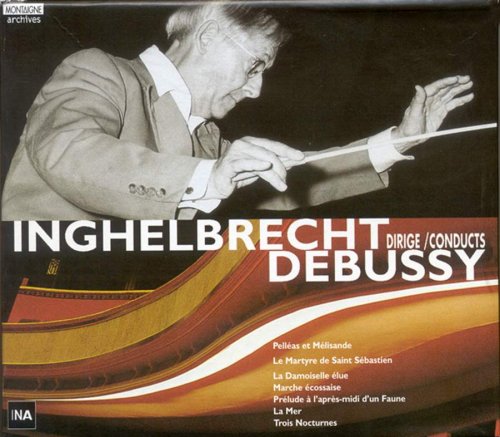
Artist: Desire-Emile Inghelbrecht, Radio Television France Chorus, French National Orchestra
Title: Inghelbrecht conducts Debussy
Year Of Release: 2012
Label: naïve classique
Genre: Classical
Quality: FLAC (tracks)
Total Time: 5:46:15
Total Size: 1.49 GB
WebSite: Album Preview
Tracklist:Title: Inghelbrecht conducts Debussy
Year Of Release: 2012
Label: naïve classique
Genre: Classical
Quality: FLAC (tracks)
Total Time: 5:46:15
Total Size: 1.49 GB
WebSite: Album Preview
Pelléas et Mélisande
01. Act I, Scene 1: Une forêt (Golaud, Mélisande)
02. Act I, Scene 2: Un appartement (Geneviève, Arkel, Pelléas)
03. Act I, Scene 3: Devant le château (Mélisande, Geneviève, Pelléas)
04. Act II, Scene 1: Une fontaine dans le parc (Pelléas, Mélisande)
05. Act II, Scene 2: Un appartement dans le château (Golaud, Mélisande)
06. II, Scene 3: Devant une grotte (Pelléas, Mélisande)
07. Act III, Scene 1: Une des tours du château (Mélisande, Pelléas, Golaud)
08. Act III, Scene 2: Les souterrains du château (Golaud, Pelléas)
09. Act III, Scene 3: Une terrasse au sortir des souterrains (Pelléas, Golaud)
10. Act III, Scene 4: Devant le château (Golaud, Yniold)
11. Act IV, Scene 1: Un appartement dans le château (Pelléas, Mélisande)
12. Act IV, Scene 2: — (Arkel, Mélisande, Golaud)
13. Act IV, Scene 3: Une fontaine dans le parc (Yniold, le berger)
14. Act IV, Scene 4: Une fontaine dans le parc (Pelléas, Mélisande)
15. Act IV: Une chambre dans le château (le médecin, Arkel, Golaud, Mélisande)
16. No. 1, Nuages
17. No. 2, Fêtes
18. No. 3, Sirènes
Le Martyre de Saint Sébastien
01. I. La cour des lys
02. II. La chambre magique
03. III. Le concile des faux dieux
04. IV. Le laurier blessé
05. V. Le paradis
01. La demoiselle élue, L. 162
02. Marche écossaise, L. 77
03. Prélude à l'après-midi d'un faune, L. 86
La Mer
01. I. De l'aube à midi sur la mer
02. II. Jeux de vagues
03. III. Dialogue du vent et de la mer
Trois Nocturnes
01. I. Nuages
02. II. Fêtes
03. III. Sirènes
Désiré-Emile Inghelbrecht was one of the most prominent French conductors of the first half of the twentieth century and a leading champion of the work of composer Claude Debussy. His family was musical: His father was a viola player in the Opéra de Paris and his mother was a pianist and violinist. They taught him the violin early on and enrolled him in the Paris Conservatory's courses on solfège and harmony under Taudou. For whatever reason, after several years there, he was expelled on the ground of "musical ineptitude."
This did not prevent him from getting a musical job, for he joined an orchestra as a violinist. He learned the art of conducting from observation and self-study and debuted as a conductor in 1908 at the Théâtre des Arts. He became friends with Debussy, who asked him to prepare the choruses for the premiere of Le martyr de St. Sébastien in 1911. After this, he became director of music at the Théâtre des Champs Élysées in 1913. In that position, he conducted the first French-language production of Mussorgsky's Boris Godunov.
He remained closely associated with theater music throughout his conducting career. Two major exceptions came in 1928 to 1932 when he led the Pas de Loup Concerts and after 1934, the year in which he founded the Orchestra National de la Radiodiffusion Française. This orchestra, whose name is sometimes given as the French Radio Orchestra or the O.R.F. (later O.R.T.F. Orchestra, is one of Paris' leading orchestras and the country's premier broadcast orchestra. He had two terms as its musical director, 1934 - 1944 and 1951 - 1958. His theatrical appointments included the Ballets Suédois (or Swedish Ballet, a French group despite its name) (1920 - 1923), the Opéra-Comique (1924 - 1925, 1932 - 1933), the Algiers Opera (1929 - 1930), and the Paris Opéra (1945 - 1950). Throughout his life, he was regarded as the primary champion of Debussy's opera Pélleas et Mélisande and his stereo recording of it taken as an authentic representation of the style of its original performances. He was also a prolific composer in a style similar to those of Debussy or late Fauré, with subtle, clear orchestration. His best-known composition is Le nursery (1905 - 1911), a five-volume piano suite that he also orchestrated. © Joseph Stevenson
This did not prevent him from getting a musical job, for he joined an orchestra as a violinist. He learned the art of conducting from observation and self-study and debuted as a conductor in 1908 at the Théâtre des Arts. He became friends with Debussy, who asked him to prepare the choruses for the premiere of Le martyr de St. Sébastien in 1911. After this, he became director of music at the Théâtre des Champs Élysées in 1913. In that position, he conducted the first French-language production of Mussorgsky's Boris Godunov.
He remained closely associated with theater music throughout his conducting career. Two major exceptions came in 1928 to 1932 when he led the Pas de Loup Concerts and after 1934, the year in which he founded the Orchestra National de la Radiodiffusion Française. This orchestra, whose name is sometimes given as the French Radio Orchestra or the O.R.F. (later O.R.T.F. Orchestra, is one of Paris' leading orchestras and the country's premier broadcast orchestra. He had two terms as its musical director, 1934 - 1944 and 1951 - 1958. His theatrical appointments included the Ballets Suédois (or Swedish Ballet, a French group despite its name) (1920 - 1923), the Opéra-Comique (1924 - 1925, 1932 - 1933), the Algiers Opera (1929 - 1930), and the Paris Opéra (1945 - 1950). Throughout his life, he was regarded as the primary champion of Debussy's opera Pélleas et Mélisande and his stereo recording of it taken as an authentic representation of the style of its original performances. He was also a prolific composer in a style similar to those of Debussy or late Fauré, with subtle, clear orchestration. His best-known composition is Le nursery (1905 - 1911), a five-volume piano suite that he also orchestrated. © Joseph Stevenson
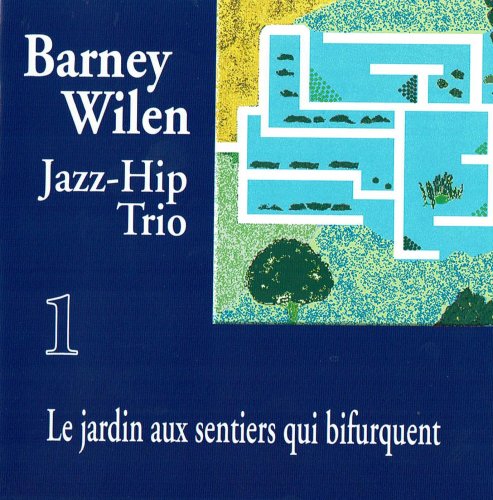

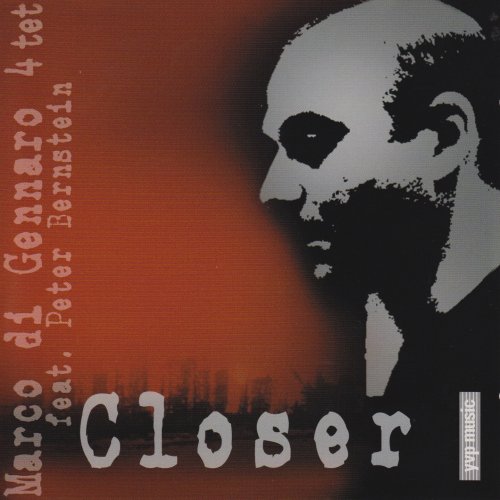

![Richard Carr, Czech National Symphony Orchestra, Vladimir Martinka - Richard Carr: The Leap (2025) [Hi-Res] Richard Carr, Czech National Symphony Orchestra, Vladimir Martinka - Richard Carr: The Leap (2025) [Hi-Res]](https://img.israbox.com/img/2025-12/22/0ruhq82oeu9h4oypzf8u61qbv.jpg)
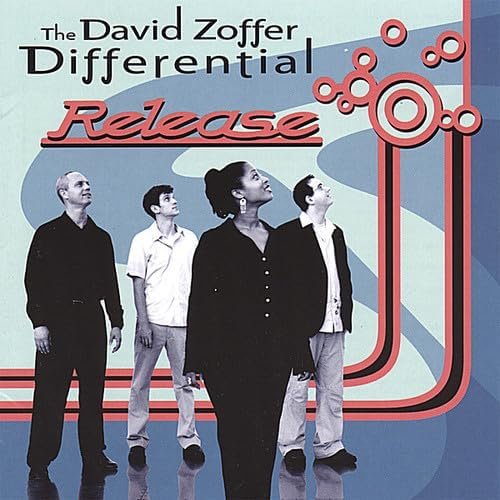
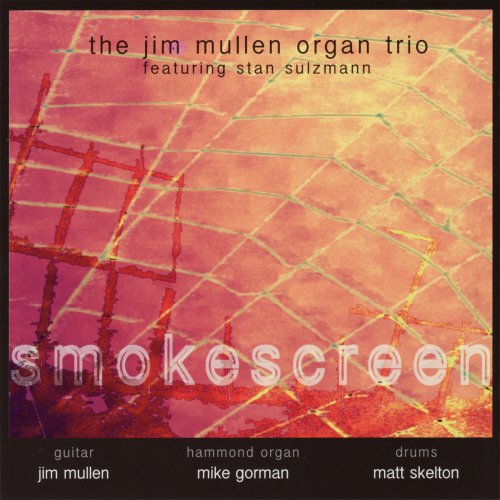

![Mariano Otero - Danza (2018) [Hi-Res] Mariano Otero - Danza (2018) [Hi-Res]](https://www.dibpic.com/uploads/posts/2025-12/1766495996_t41dgnjj3d1sb_600.jpg)